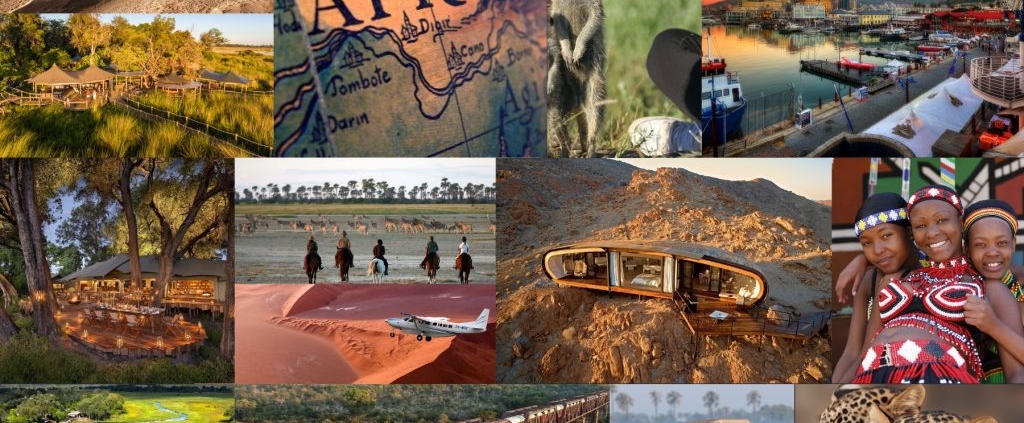What’s the Ideal Month to Travel to Africa?
Planning a trip takes time. Choosing the appropriate month? That’s what often distinguishes a memorable vacation from a poor one. People usually refer to more than just the weather when they inquire, “When to Visit Africa?” They long for the colors, the animals, the peace, and the perfect temps.
There is no one-size-fits-all answer to traveling to Africa. What you wish to observe, your destination, and the amount of movement you’re willing to do all play a role. While some areas are green, others are arid. By midday, some reach 40°C, while others remain cold. However, every continent region has a golden window; when the natural world comes to life, the people disperse, and the costs are perfect.
Let’s dissect it month by month.
Warm Days and Infant Animals from January to March
Particularly in Southern Africa, the beginning of the year brings heat. However, it also brings rain, which indicates that there will be baby animals. In countries like Tanzania and Kenya, this is called the “green season.”
What makes it a good time:
- Calving season in the Serengeti (especially February)
- Reduced tourists translate into cheaper prices.
- Beautiful landscapes, ideal for photographers
However, rain may make certain roadways difficult to navigate. Wildlife remains active in South African parks like Kruger despite the humid conditions. Despite the rain, Botswana has amazing birdlife.
April and May: Calm and Lovely
As the rains lessen, Africa dries out, yet the vegetation remains green. This shoulder season is frequently disregarded, which is why it merits consideration.
Why it’s a wise choice:
- Mild temperatures in East and Southern Africa
- At the best safari parks, fewer people
- cleaner sky for beautiful scenery
In May, nations like Rwanda and Uganda are also excellent choices. Because of the abundance of woods and the well-marked walking pathways, there is a reasonable probability of sighting gorillas.
The busiest safari season is from June to August.
When to Visit Africa for the “classic” safari? Ask any guide. In many areas, the dry season begins in June, and thus, animals begin congregating around water sources. The action reaches its climax in July and August.
Why this time frame is essential:
- The best time to visit Kenya and Tanzania to see the Great Migration is
- Comfortable travel conditions, minimal humidity, and clear skies
- As foliage thins out, animal vision is excellent.
However, peak season has a catch: more people and greater costs. Make arrangements in advance if you go to popular places like the Okavango Delta or the Maasai Mara. Camps quickly fill up.
Gold light and games are everywhere in September and October.
This stretch is for you if you enjoy dramatic safari scenery like dust, luminous sunsets, and lion sounds at night. Significant game activity concludes the dry season in October, although September provides excellent wildlife encounters.
What makes it worth it:
- Prime predator action in open plains
- Walking safaris in Zambia and Zimbabwe are fantastic during this season.
- Fewer mosquitoes, warmer evenings, and active fauna
In October, South Africa’s private reserves were firm. In addition, it’s a good time of year to see Victoria Falls before the rains come again.
November and December: Beauty Arrives, Rain Returns
In East Africa, the brief rains resume in November. Don’t cross it off your list, though. The countryside reacts quickly to the mild showers, with flowers, green shoots, and new life.
Why are people surprised this time?
- Most safari locations have fewer tourists.
- Birds that migrate start to show up.
- lower prices at a lot of campers and lodges
December provides joyful energy along with holiday crowds. Cape Town is at its best in late December with balmy days, crowded beaches, and long evenings.
Easy Ways to Choose the Correct Month
Deciding when to travel to Africa doesn’t have to be challenging. These few suggestions may be helpful:
- Decide whether wildlife, weather, or cost is your primary priority.
- Watch for local and foreign crowds during public holidays and school breaks.
- Rain doesn’t ruin a safari, but it might alter the speed, so be prepared.
- Inquire about the state of the roads, particularly if you want to drive yourself or remotely.
Conclusion
When to Visit Africa, then? Where you want to go and how you want to feel will determine the appropriate response. Some people traverse arid areas in pursuit of lions. Others desire solitude and the sound of rain. Binoculars are what some seek, while others want beaches.
Africa is more than just a location to mark things off. It all depends on timing: ensuring the people aren’t too loud, the heat isn’t too intense, and the moments seem genuine.
The journey takes form when you pick the correct month. Africa is at its finest at that point.


Leave a Reply
Want to join the discussion?Feel free to contribute!